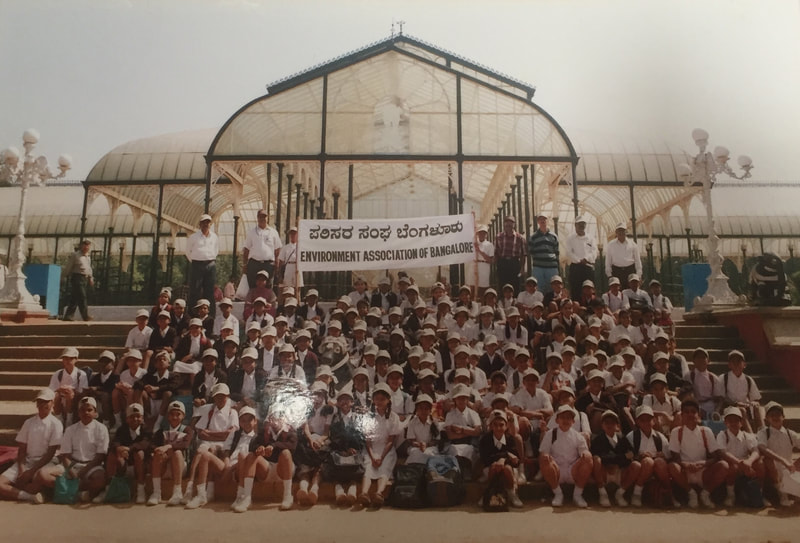- The rapid expansion of urbanization and the growth of Bengaluru City and its population particularly during the last two decades has resulted in undue and unforeseen pressures on the existing civic infrastructure. This has led to several environmental problems – such as high demand for housing accommodation, intensive land use converting more open spaces into unplanned housing layouts in the revenue sites, growth of slums, breaching of several lakes to provide lands for buildings and other amenities, including bus-stands, etc. felling of trees, degradation in the public utility services, a lowering in the per capita availability of water, woefully inadequate sewerage systems, discharge of sewage, sludge, effluents and other kinds of waste-water into storm water drains and natural drains resulting in severe pollution of the remaining lakes and waterways, etc.
- It was on January 25, 1996 that a small group of professionals in various fields got together at a workshop that was organized under the auspices of the Department of Space, Government of India, in Bengaluru. The participants at the workshop were drawn from agencies, such as the Department of Space, the Indian Space Research Organization, the Forest Department,0 the University of Bangalore, Bangalore Metropolitan Regional Development Authority, the Bangalore Mahanagara Palike, the Bangalore Water Supply and Sewerage Board, the Bangalore Development Authority, the Karnataka State Pollution Control Board, Academic institutions and also some environmentalists. The participants at this brainstorming workshop reviewed the status of a number of environmental indicators, with reference to Bangalore City.
- The group observed that, between them, they had a great deal of talent and knowledge and experience available with them. Hence, they resolved to work in a cohesive manner, so that they could assist the various civic agencies and others in addressing at least some of the environmental problems that were confronting Bengaluru City.
- In order to have a vehicle which could tackle environmental issues in a cohesive manner, the group formed a Non-Governmental Organization, called the Environment Association of Bangalore (EAB). The first set of members – the founder-members – were drawn from various governmental agencies, such as the Department of Space and the Indian Space Research Organization, BWSSB, BDA, BMP, BMRDA, Forest Department and University of Bangalore. EAB has the strong feeling that with increased awareness, knowledge, skills, attitudes, values, and motivation, the responsible citizens can become more ecologically literate and act competently to build a sustainable future for humans and ecosystems.


